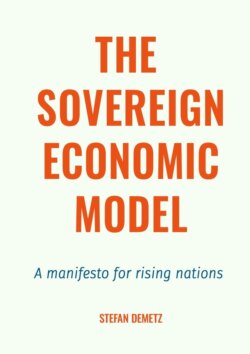Читать книгу The Sovereign Economic Model. A manifesto for rising nations - Stefan Demetz - Страница 24
State capitalism
Control of Assets: State vs. Private Property
ОглавлениеOne process a sovereign country must engage in is control of the most strategic sectors of the economy and systemic companies. Many companies are in private hands, so how can a state achieve control? A government has many levers, especially the legislature and law enforcement. A government may create laws to nationalize companies or to put so many sticks in the wheel that the business becomes less attractive to investors or even becomes unviable in private hands.
Re-nationalization or reverse privatization can be options for regaining lost assets. Where assets were privatized using illegal methods, such as bribes, a state can nationalize a business without compensation. In addition, gross negligence and tax avoidance or evasion are good reasons for a state to seize the business. Here, a state might pursue de-privatization by purchasing a controlling or golden share of a company on the open market or through a direct acquisition. The owners are compensated or given incentives to cede control. If a company is struggling with financial debt, the company itself is sequestered by the government and nationalized or bought during bankruptcy proceedings.
Alienation by extreme measures or stealth are yet other methods. The previous two methods involved solid legal or business methods for the state to take control of assets. However, sometimes the state may use all the tools available, even disputable ones, to take the asset. The pressure exerted by a government can lead to alienation of the assets, in which the owner decides it is more convenient to cede control.
Tax investigations may be launched against the main shareholders, the business may be embargoed by government procurement, or other tools could be used to seize control, such as the following:
• Non-renewal of licenses, e.g., telecom companies
• Vexing taxation on extraction of natural resources
• Boycott of government procurement
• Government buy-in of controlling or golden shares
• Restriction of business sectors to government agencies
• Changes in regulations or taxes for foreign-owned enterprises
• Government law with declaration of public use
A government must be relatively careful with nationalization as national and international rules and regulations protect investors’ money. Spurned investors, through local courts, can ask for arbitration in international bodies and claim compensation. Large TNCs often win these cases because of backing from their home country in international courts and other countries with large TNCs. These cases then develop into international political conflicts.
